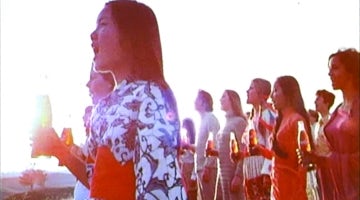Coke to communicate ‘more pointed’ diversity messages
Coca-Cola is to make the messages around the brand’s equality and diversity values “more pointed” in its marketing over the coming months, a shift that comes as the company faces increasing pressure from gay rights campaigners over its sponsorship of the 2014 Sochi Winter Olympics in Russia.

Speaking to Marketing Week ahead of his appearance at the International Content Marketing Summit later this month, Coca-Cola’s recently promoted senior vice president of integrated marketing communication and design excellence for North America Jonathan Mildenhall said upcoming marketing – including its Sochi 2014 sponsorship activation – will highlight the brand’s values around “inclusivity and diversity”.
In June this year Russian president Vladimir Putin signed a so-called “anti-gay law” which prohibits the promotion of “non-traditional” relationships to minors. The move has cast a shadow over the forthcoming Olympics, with gay athletes and sports fans fearful of arrest should they attend.
Coca-Cola, a sponsor of the Sochi Olympics, has come under particular pressure for not protesting the law. A petition created by campaign group All Out urging the brand to call for the repeal of the anti-gay law has been signed by almost 360,000 people. Last month, 100 days from the start of the Games, All Out held a demonstration at Coca-Cola’s Atlanta campus with trucks towing 22-foot-high billboards stating: “Coca-Cola don’t stay bottled up, speak out against Russia’s anti-gay laws”.
Mildenhall said the situation in Russia is a “sensitive issue” but it gives the brand an opportunity to dial up its “work that matters” values-based marketing proposition it presented at Cannes earlier this year.
He added: “As a company we have equal rights for all our employees at all our countries around the world and we are hugely proud of our humanitarian values because as a brand, Coke has always been about inclusivity and diversity.
“We have to be respectful of different cultures, Governments and policies because we are none of that, but we will put out more pointed messages abut Coke’s brand values. Coke as a brand has always believed the world is a better place when you are accepting and we have always brought people of different backgrounds together.”
Marketing around Sochi will be about “insuring people come together and enjoy this sporting event, respect the athletes and be respectful of their different backgrounds”. Mildenhall said this strategy is “not reactive” to the protests around the anti-gay law being passed in Russia, but he said this topical issue makes what the brand is doing “even more relevant”.
Mildenhall added: “Perhaps we have not been as loud in communicating our beliefs in diversity and equality as the Hilltop [’I’d like to buy the world a Coke’ ad] days, but you will see us go back to [talking about these] beliefs.
“We have been thinking about Coke’s place in cultural leadership for over a year and about our DNA in cultural events and integration.”
Such cultural landmarks include in 1955 where Coke claims to be the first brand to feature a black person in its advertising, in 1969 when it was the first brand to feature black and white people together and its famous Hilltop ad of the 1970s.
Marketing around the FIFA 2014 World Cup also has an inclusivity theme, with Coca-Cola positioning the tournament as “The World’s Cup”, inviting people through social media and experiential to take part in “their tournament”.
Another area Coca-Cola is dialling up in the forthcoming year is “real time marketing”. It recently set up a hub in its Atlanta HQ to “assess the global conversation” and is staffing up a team of TV producers and journalists to make the division behave more like a news room than a traditional marketing department.
Mildenhall said of the recruitment process: “I don’t think we will recruit less MBAs but I think that the role of the marketing department will change. We are looking for the kind of people who understand what goes on in pop culture, the potential of a story and when a story dies down in interest, then to amplify that and put it on different platforms.”
Mildenhall is speaking at the fourth annual International Content Marketing Summit on 27 November at Old Billingsgate in London. Marketing Weekis the exclusive media partner.







